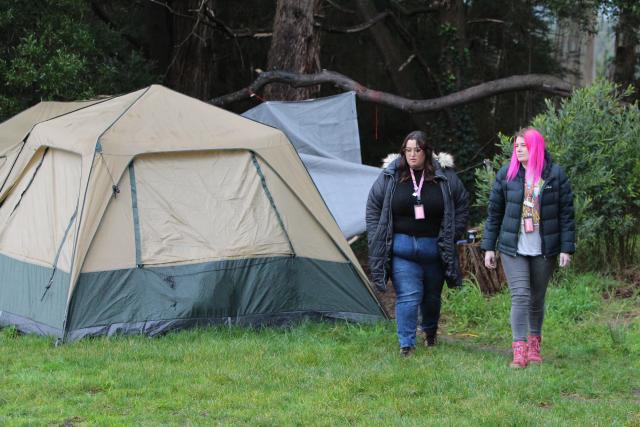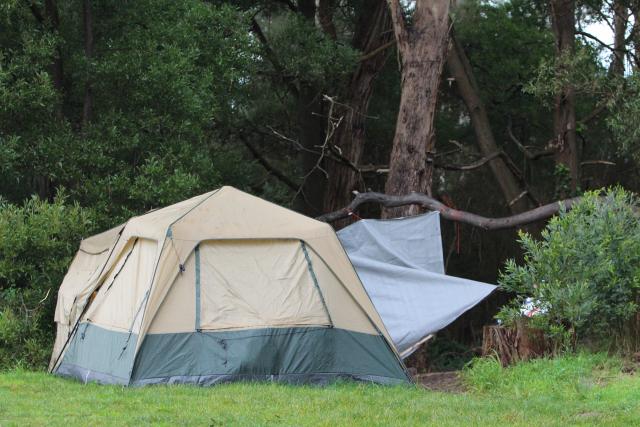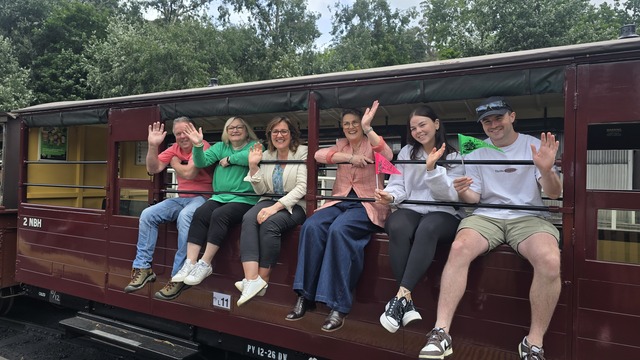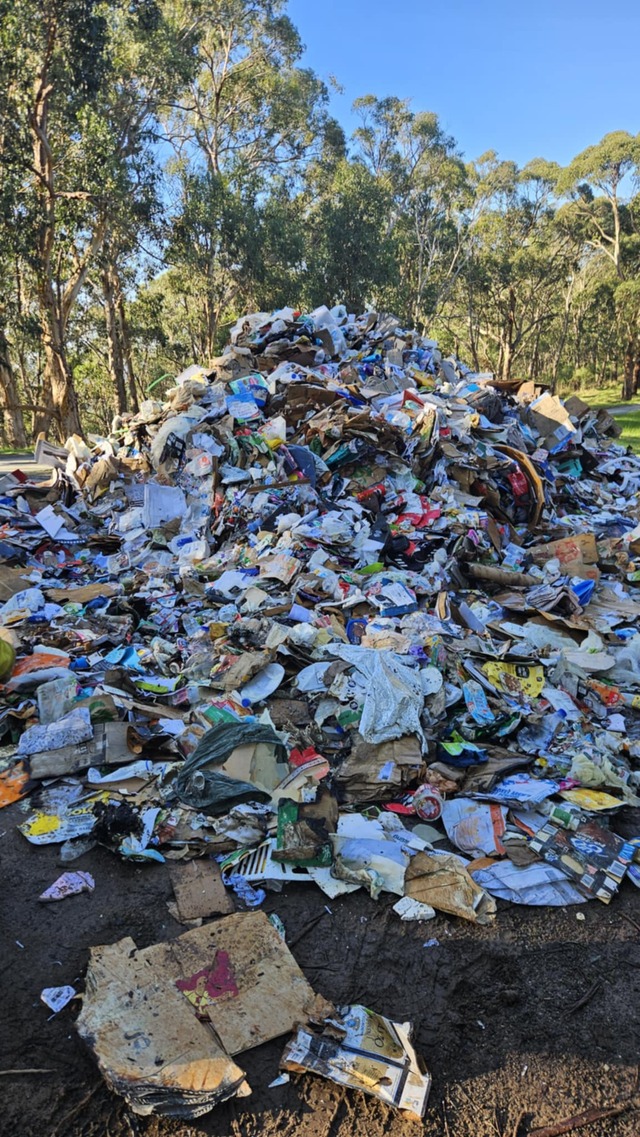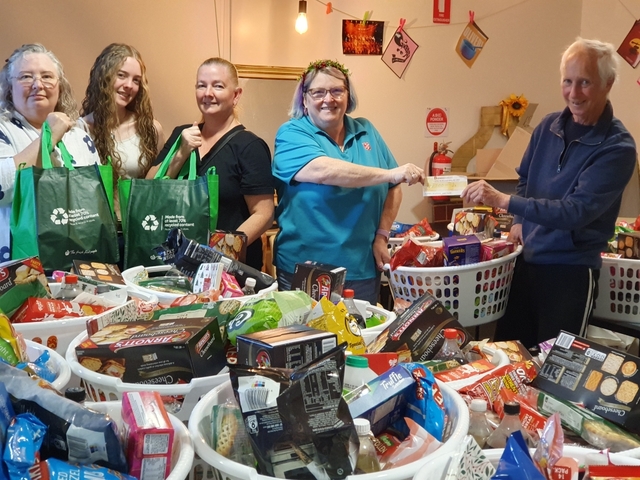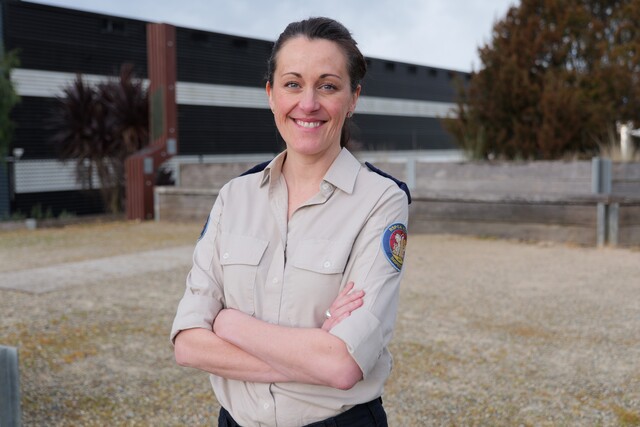This article was originally published in full in Parity Magazine, Australia’s national homelessness publication.
One of the notable attractions of the Yarra Ranges lies in the remarkable diversity of its landscape. A mere 30-minute car ride will take you from the bustling suburban areas of Mooroolbark and Lilydale up to the picturesque heights atop Mt Dandenong and the sprawling vineyards of the esteemed Yarra Valley wine region.
Local organisations that support rough sleepers need to reckon with the uniqueness of the Yarra Ranges if they are to have an impact on the ground.
It is with this context that the Rapid Response Program (RRP) was conceived in 2018.
Originally funded as a pilot project by the Yarra Ranges Council, the partnership between the council and Anchor Community Care has been a positive one in which the two combine to proactively reach rough sleepers.
So far, the program has delivered outreach crisis support and referral to health care, dental care, nurse outreach, mental health, and psychiatric help, as well as additional wellbeing and housing access.
“People who are homeless can be difficult to reach, particularly when it is across such a large geographical municipality and that’s why this program is so useful – it reaches people in need on their terms,” Yarra Ranges Mayor, Cr Jim Child said.
“Not only is this program effective in supporting rough sleepers, but the value-add this partnership has brought is the way it has opened lines of communication between those at the coalface and council. This has helped build the capacity of council staff to respond to homelessness and has led to collaborations that extend beyond the scope of this project,” Cr Child said.
Anchor Rapid Response Senior Worker, Talia Appleby, has seen the program grow since its inception. She is one of only two women providing the outreach work, covering a total area of 2,500 square kilometres between them.
She explains that the program was started because rough sleepers were less inclined to travel ‘down the line’ to the main service area of Lilydale, where Anchor provides the only crisis response program for those experiencing homelessness in Melbourne’s outer-east.
“We were finding that there was a real need for outreach support to help get to where rough sleepers were. At the same time, the council was receiving an influx of reports of people sleeping rough,” she said.
“It presented a perfect opportunity to collaborate on a better approach and stop rough sleepers falling through the gaps in such a large area.”
The distinct profile of the area produces a unique situation for rough sleepers. Unlike the CBD and inner city areas, the Yarra Ranges doesn’t have multiple services providing widespread coverage.
There are no rooming houses further out than Lilydale, and access to material aid is scattered across the region, typically attached to church organisations.
Whereas those sleeping rough in the city tend to have travelled to be there, Yarra Ranges residents who find themselves sleeping rough tend to not want to leave the area with which they are familiar. Solo rough sleepers are also far more common.
“If they are born and bred in the area, they will try to remain where their supports are, whether that is emotional, financial, or practical,” Talia said.
“If you were to find yourself in crisis, you wouldn’t want to leave the area that you consider to be home. Neither do our rough sleepers.”
Anchor’s involvement has helped to change Council’s default response being to move rough sleepers on or involving authorities.
“Now when the council are made aware of rough sleepers, provided no one is in immediate danger, they call us first and we lead with engagement and care.”
The size and isolation of some of the bush areas can pose situations that require good risk management. Call-outs are often initiated by reports made by the public to the Council, often providing scarce details for the team heading out.
The Covid-19 pandemic almost derailed things when, mid-way through the pilot, government lockdown orders saw all people sleeping rough sheltered in local motels and other arrangements.
While it might sound positive that there were zero rough sleepers for a time, the experience was not a good one for many of the rough sleepers supported by Anchor.
“A lot of problems were exacerbated,” says Talia, whose team were restricted to providing service only over the phone.
“It went two ways: there were some who didn’t want to be placed in the motels and they would further isolate themselves and not engage with services as much.”
While the Rapid Response Project was able to return to normality during 2022, concerning trends showed that the COVID pandemic had exacerbated the housing crisis and brought about a new cost of living crisis fuelled by inflation.
The council’s evaluation found the project had exceeded their anticipated outcomes during the pilot period from 2018 – 2022, with the program responding to more than 100 reports of rough sleepers in the area.
The refunding of the program in 2023 was an easy decision for the Council given the impact the program has had:
17 per cent of Rapid response clients accepted respite accommodation as a result of engaging with the program, and 18 per cent found long term accommodation.
“Analysing the success of programs like the Rapid Response Program shows that it works, and we will continue to support this, and a number of other initiatives to respond to those people who find themselves homeless,” Mayor Child said.
Program re-funding sees Rapid Response extended for a further four years.
In addition to the outreach that will continue to support rough sleepers, Anchor is seeking to use the success of the program to generate better integration of the data that is captured through the program.
An adaptable map and shareable database will ensure that police, ambulance, fire, and crisis services are made aware of individuals’ locations, safety status, and health needs during emergency events.

